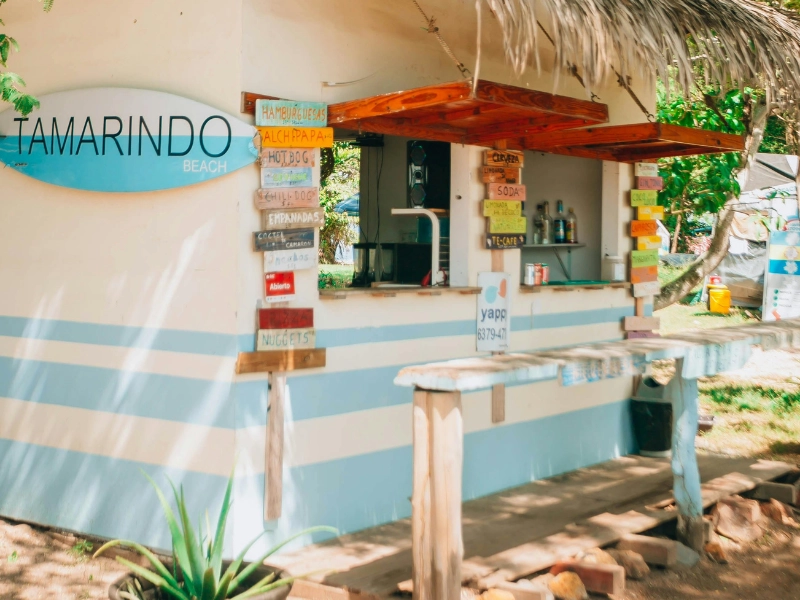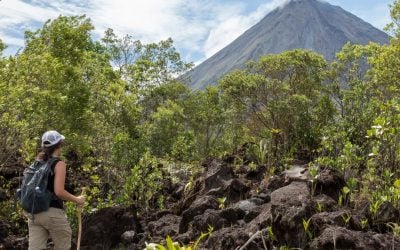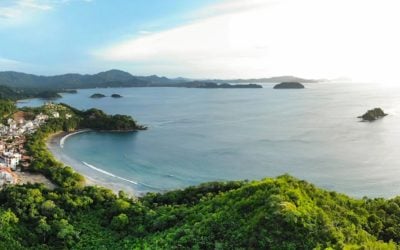Banana plantations in Costa Rica, together with coffee and cocoa, are one of the most important agricultural products for exportation, impacting the economy, culture, and national identity.
Discover the impact of banana production in Costa Rica and why it’s one of the country’s most important crops.
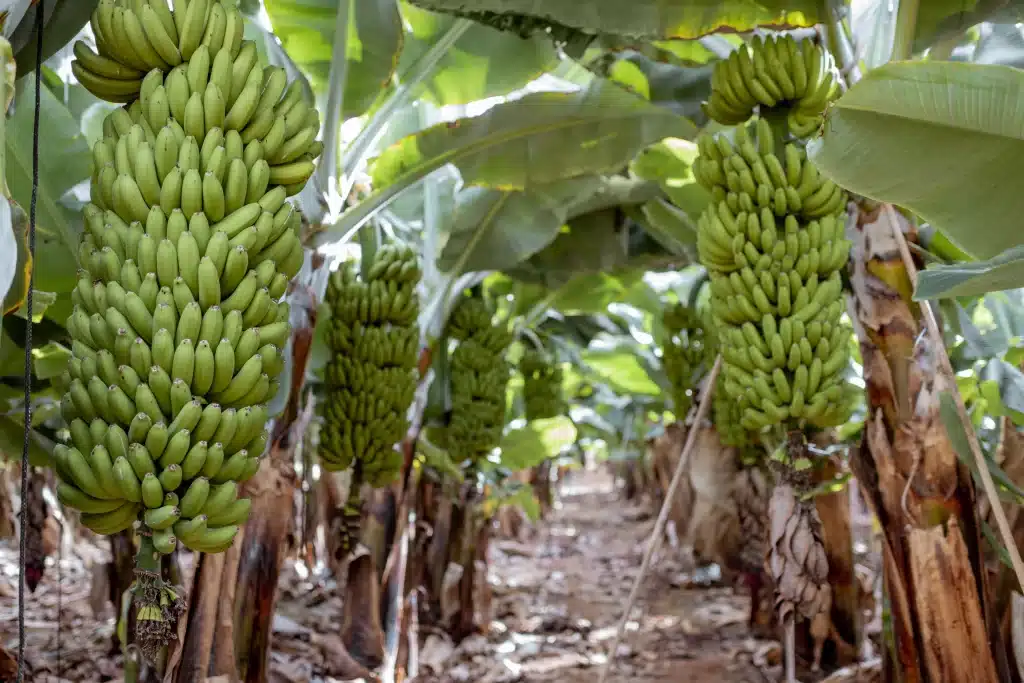
The Importance of the Banana Industry to Costa Rica’s Economy and Culture
Costa Rican farmers began growing banana plants in 1878, making Costa Rica the first Central American country to do so. With the final tracks laid for the Atlantic Railway by 1890, the industry increased and continued throughout the 20th century as more people discovered this delicious fruit.
Nowadays, Costa Rica’s banana plantations are essential to the economy because banana farms around the country provide employment opportunities for thousands of people, especially in rural areas with limited job options. These jobs include positions in agriculture, transportation, logistics, and other related industries.
Additionally, the revenue from banana exports supports trade relations between Costa Rica, the United States, Europe, and other regions. Costa Rica exports an average of 100 million boxes of bananas (1.87 metric tons). This is the equivalent of 10% of world exports.

Where are Bananas Grown in Costa Rica?
Plantations in Costa Rica have designated more than 100,000 acres for their production. Most banana producers are on the Caribbean coast, near the Sixaola River, Matina, and the Estrella Valley. Growing bananas is also done by producers on the Pacific coast, close to Golfito and Quepos.
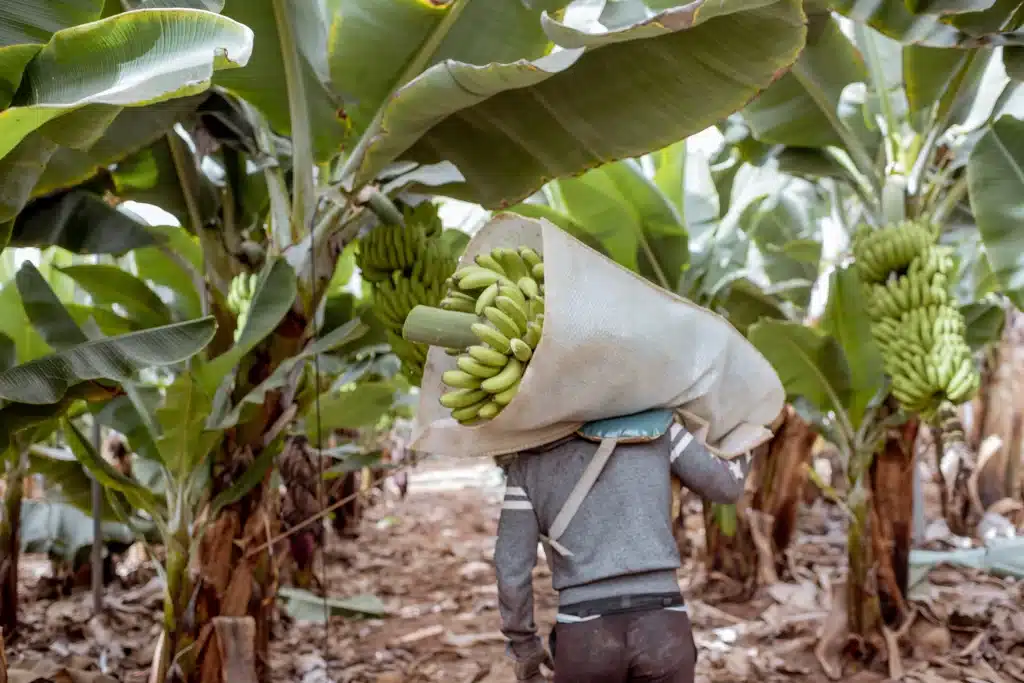
What Makes Costa Rican Bananas So Special?
Costa Rican bananas are special for many factors, including their high-quality and sweet, tasty flavor.
But some other factors include:
- Ideal growing conditions: A tropical climate, rich soil, and abundant rainfall make Costa Rica the perfect place to grow bananas. Also, most banana plantations are in low-lying coastal areas protected from strong winds and storms.
- Sustainable practices: Many banana growers use organic fertilizers, conserve water resources, and use natural pest control methods.
- Strict quality standards: Banana farmers adhere to strict quality standards, which ensure the bananas are of the highest quality and meet international standards. These standards cover the cultivation, harvest, packing, and transportation of bananas.
By following all these practices, producers can guarantee the banana industry’s long-term viability and the crops’ health.
Traditional Costa Rican Dishes Featuring Bananas
Despite its simplicity, Costa Rican cuisine is exquisite. The food is prepared with natural ingredients and a lot of love, which is why it tastes so good. In a region where bananas are abundant, it is no wonder they are used in many national dishes.
The most popular ones are:
- Patacones: Green plantains are sliced thickly, crushed to a pulp, and deep-fried to make patacones.
- Maduros: These are ripe, sweet plantains that are fried until they are caramelized and crispy.
- Guineos en gloria: This is a dessert made with ripe bananas that are sliced and cooked with sugar and cinnamon until they become caramelized and syrupy.
- Ceviche de banano: This is a unique twist on traditional seafood ceviche, utilizing ripe bananas instead of seafood. With lime juice marinating the bananas and diced onions, peppers, and cilantro. This dish is both refreshing and flavorful.
- Casado: This is a popular Costa Rican dish that typically features rice, beans, salad, and a choice of meat, fish, or vegetables. Fried plantains are often included as a side dish or garnish.
Can I Visit Banana Plantations in Costa Rica?
Yes! You can visit banana plantations in Costa Rica, see banana trees firsthand, and learn more about the country’s banana industry and agricultural practices.
Popular plantation tour destinations
The most popular plantation tour in Costa Rica is in the Cahuita National Park Wildlife Reserve. When you visit the area, you’ll learn about two key aspects of Costa Rican culture and economy: chocolate production and banana farming.
The tour typically starts at a chocolate house. Here, you will learn about the history of chocolate production in Costa Rica and how the cacao bean is processed to make chocolate. Next, the tour takes you to a nearby banana plantation, where you can see the banana cultivation process up close.
You can also learn about banana farming challenges and the importance of sustainable agriculture practices.
What to expect on a plantation tour
During a plantation tour, you can learn about the history, cultivation, and processing of bananas in Costa Rica. On some tours, you might walk through banana fields and see the plants up close, learn about banana varieties, and see how bananas are harvested and packaged.
Additionally, several tours include tastings of bananas and other tropical fruits and the chance to purchase banana products such as chips, jams, and preserves.
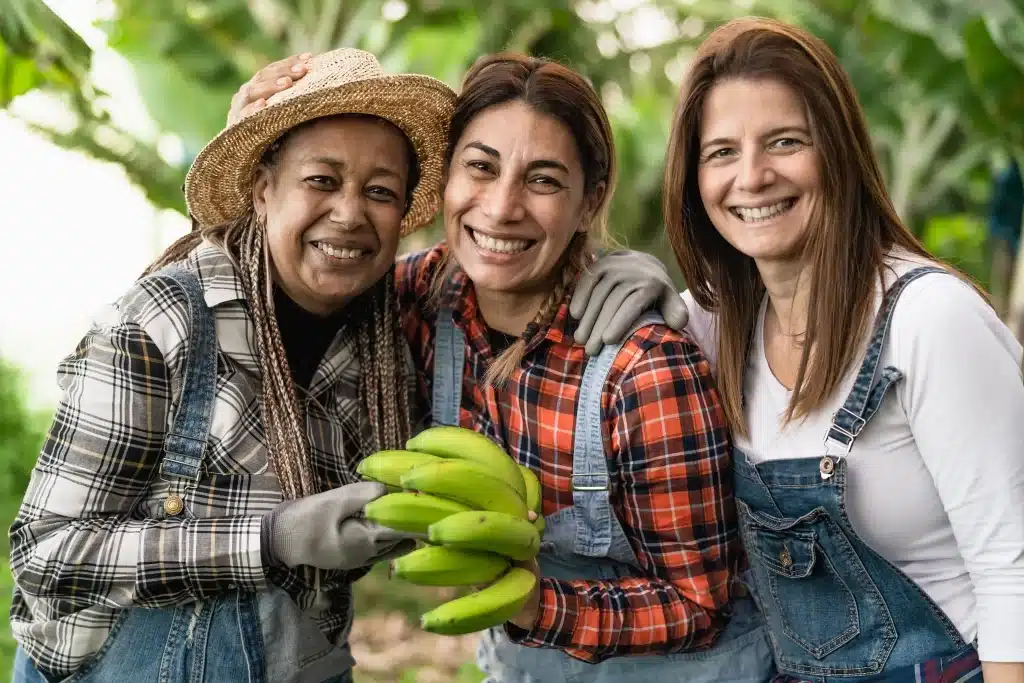
Environmental Efforts in Costa Rica Banana Production Industry
Banana farmers in Costa Rica have improved their environmental practices in the past couple of years. Among the most notable initiatives is the National Banana Corporation’s (Corbana) Carbon Neutral certification.
As part of its certification process, Corbana agreed to reduce greenhouse gas emissions and compensate for them. Costa Rica set an example for other banana-producing countries to follow.
Additionally, the Institute stated that the banana industry needs to take environmental responsibility since the activity has an ecological impact in some communities that cannot be avoided.
How Can I Support the Costa Rican Banana Industry?
Supporting the Costa Rican banana industry is good for the economy, the environment, and the people who live and work in banana farming communities.
If you want to support the Costa Rican banana industry, there are several things you can do to make a positive impact.
Here are some ideas about what you can do:
- Choose a tour operator that prioritizes ethical and sustainable practices. Make sure the company offers eco-friendly tours and supports local communities.
- Ensure the products you purchase are certified by the Rainforest Alliance and fair trade. Purchasing bananas with these certifications ensures that the bananas are grown ethically, sustainably, and safely for banana plantation workers.
- Support local farmers directly by buying bananas from local markets or supporting organizations that promote sustainable agriculture in Costa Rica.
Whether you’re planning a visit to a banana plantation or simply want to learn more about sustainable agriculture, at Find My Costa Rica, we’re here to help. Contact Find My Costa Rica today to learn more about how we can help you plan an insightful yet fun trip.


